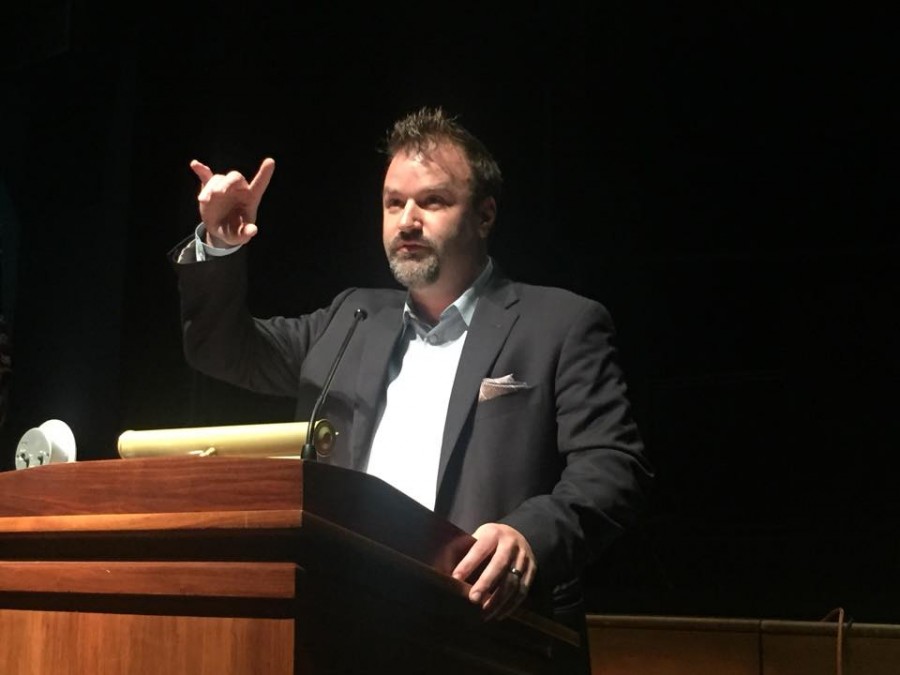Two noted authors give readings, share insight
November 6, 2015
Lakeland was treated to readings by poet A.E. Stallings and novelist Nickolas Butler on Thursday, Nov. 5 as part of the Great Lakes Writers Festival. Both read from their acclaimed works at the morning convocation in the Bradley Theater and later that evening in the 1862 Lounge.
Professor and poet in residence Karl Elder hosted the event. To begin, he commanded silence of the audience by holding one arm aloft, wordlessly, as if he were an orchestra conductor frozen in time. It was a fittingly idiosyncratic start to an event dedicated to two unique literary voices.
Junior writing and psychology major Danielle Livingston introduced Stallings as a poet so good she made Livingston angry. Stallings is a formalist and lives in Greece; both of those biographical elements were present in her chosen selections. Her poems, in such forms as a “Fib” and a “triolet,” playfully dealt with subject matter such as the mythological Hades and Pandora, whom she endowed with contemporary concerns and values.
From her poem “Presto Manifesto,” specifically requested by Elder, she read, “Rhyme annoys people, but only people who write poetry that doesn’t rhyme, and critics.”
Another junior writing major, Karalee Manis, introduced Butler. She praised his ability to depict snowy Wisconsin winters and noted that he lived adjacent to a buffalo farm near Eau Claire. Such lived Midwestern experience suffused the passage he read from “Shotgun Lovesongs,” in which a rock star attends the small-town wedding of his childhood friend.
“America,” according to that character, “is about poor people playing music and poor people sharing food and poor people dancing, even when everything else in their life is so desperate, and so dismal that it doesn’t seem there should be any room for any music, any extra food, or any extra energy for dancing.”
The 1862 reading was intimate, and the authors appeared relaxed yet keen. They seemed to appreciate the smaller space and receptive, modest crowd. Butler noted with a smile that he preferred to share poetry, not his usual medium, with people who have been drinking. In keeping with that, he told a story in which a young man awkwardly orders a drink for the first time. It was a typically perceptive and humanistic passage. After the guests of honor spoke there was an open mic and a general feeling of conviviality pervaded the room.


